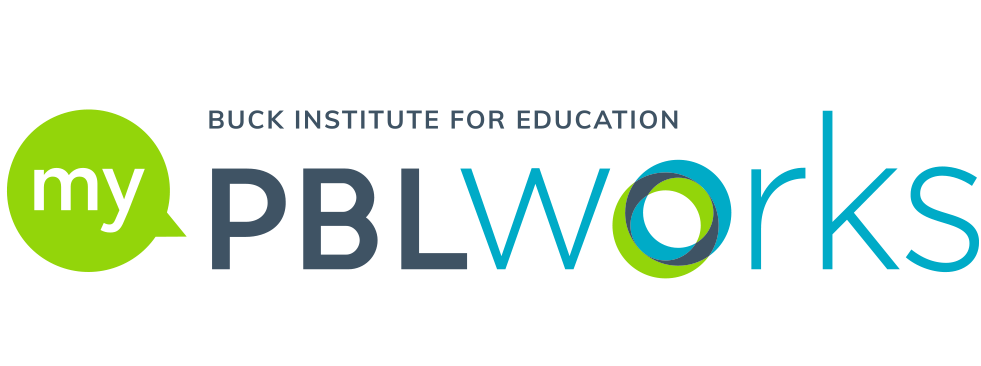A Project Develops Citizenship Through Authentic Literacy
The auditorium was packed with students, teachers, local business representatives, city officials, school board members, the superintendent, state legislators, and a congressman. Most people wouldn’t expect to see 14 year olds take center stage to speak to government officials about substantive issues that concern them as citizens. However, these high school freshmen were poised and passionate to share their insights.
PBL has an immense capacity to provide real world opportunities to develop literacy in students. Students who engage in authentic literacy experiences gain higher comprehension and writing skills compared to those who do not. In our new PBL pilot Pathways Program, in Williamsburg, Virginia, students worked on their literacy skills by inviting state and local government officials to school to hear them out on a variety of much debated political and environmental concerns. Students created videos that they submitted to the national Letters to the Next President campaign. This project, developed by the National Writing Project, empowers youth to take civic action before they reach voting age by writing to the president about the issues that matter to them the most.
You might ask, how was this project an authentic literacy experience? To break it down, we can use the following questions from the BIE blog post “How does PBL support authentic literacy?”.
Does the project include an authentic written product that someone outside the school context would create?
Given our current political climate, this was a wonderful opportunity for students to practice civic engagement by researching issues relevant to their lives and formulating individual arguments, much like a letter to the editor, which they then used as a springboard to create video letters. To do this, students used a variety of persuasive strategies that spoke directly to the people in political office who can act as change agents. This opportunity provided students with a safe space to fact check findings and to explore how they feel about these issues. Just as anyone has the capacity to disseminate their viewpoints through a variety of media outlets such as Facebook, Twitter, political blogs, letters to the editor, and so forth, creating these videos provided a vehicle for students to make their voices heard.
Does the project include a written product that meets a real need?
Since this project occurred in the midst of our 2016 presidential election, these letters provided a meaningful opportunity for students to engage with the current political, environmental, and social issues that were debated in the election and continue to remain topics of contentious national discussion. Not only did students critically engage with these topics, but they also voiced their concerns to elected government officials, which is one of the most meaningful forms of power that our democracy offers its citizens.
Does the project set students up to generate their own questions to frame their investigation into the Driving Question?
The questions used to guide students were: “What current issue matters the most to me in the national dialogue surrounding the impending presidential election? How do I become an informed voter? How can I effectively express my voice in the national conversation of the 2016 election?” Students were given the autonomy to pursue issues they cared about rather than assigned topics. Throughout the research process students generated their own questions regarding issues like climate change and the environment, immigration and terrorism, and domestic safety and police brutality. Students were encouraged to try to offer novel solutions grounded in logic and research into these very complex problems.
Does the project enable students to find answers to their questions?
Students participated in sustained, self-directed inquiry throughout the process and used research to guide their thinking. In an effort to find meaningful answers, they also deconstructed their own and others’ perspectives and biases. However, students primarily conducted their research on the Internet. In future iterations of the project, in order to achieve greater authenticity, the scope of research could encompass more interviews with experts and people affected by these political, environmental, and social issues. Speaking to immigrants about immigration, for example, makes the experience all the more real.
Does the project include critique, ideally by an expert or the product recipient?
Students were able to showcase their videos to local and state government officials who offered feedback on the event as a whole. Going forward, the authenticity of the experience could be enhanced by having students Skype with professionals in the fields engaged in work surrounding these issues, or by facilitating a more open dialogue with elected officials during the showcase about these issues.
Does the project allow students to present their work to the intended recipient?
Although these projects were uploaded to the Letters to the Next President website, what made it most authentic was that students invited local legislators and congressmen in to personally engage with their work.
Students knowing that their voices matter in local, state, and national politics is the first step to ensuring a democracy continue to evolve and thrive. Being able to articulately and effectively make people listen is the task of authentic literacy. This kind of project not only gives students a voice but ultimately encourages them to listen to others as well.
If you would like to read more about Pathways, please visit us at the Center for Innovation in Learning Design at the College of William & Mary.
To view or download this resource, log in here.
Login